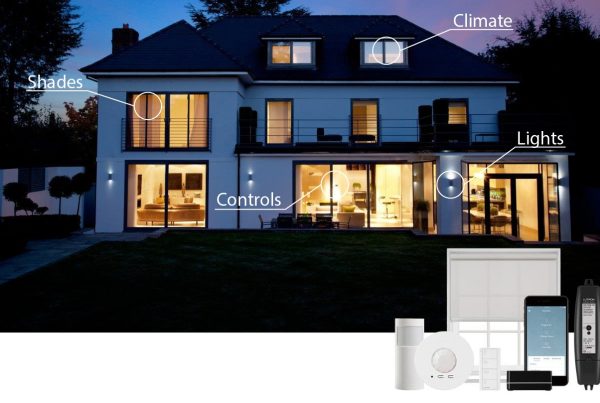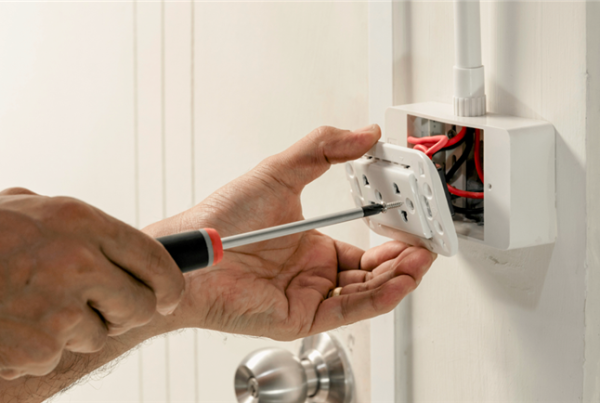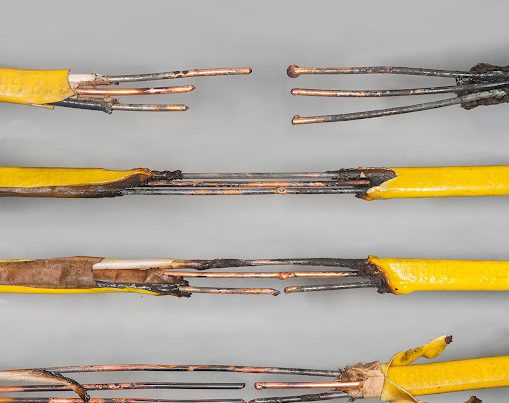Why gamble with your electrical safety? Electrical work isn’t just about fixing wires—it’s about ensuring safety and reliability. Hiring an unqualified electrician can pose serious risks, such as faulty wiring, potential fires, or other electrical hazards. Expertise matters greatly when it comes to your home or business.
Choosing a qualified electrician ensures your electrical systems are in good hands. Let’s explore the significance of hiring the right professionals and the potential risks of settling for anything less.
1. Understand Your Project Scope
Residential electricians and commercial electricians offer specialized services based on the scope of your electrical needs.
Identify Your Specific Electrical Needs
What problem are you facing right now? Is it related to installation, repair, or upgrade? It’s important to pinpoint the exact issue. Also, consider any safety worries that require immediate attention.
Common Electrical Projects
Projects can typically be categorized into three main types:
- Installations: This involves setting up new wiring or installing appliances.
- Repairs: This includes fixing any electrical faults or malfunctions that may arise.
- Upgrades: Enhancing electrical systems to improve efficiency and functionality.
Questions to Define Project Scope
To define the scope of your project, consider the following questions:
- Is it for a new installation, repair, or upgrade?
- What is the exact nature of the electrical work needed?
- Are the services required for residential or commercial purposes?
2. Types of Electricians
- Residential Electricians Residential electricians specialize in upgrading and repairing home electrical systems. They handle tasks like installing new circuits and troubleshooting wiring issues with precision.
- Commercial Electricians Commercial electricians are experts in managing complex electrical systems for businesses and large-scale projects. They ensure compliance with safety regulations and efficient power distribution in office buildings, factories, and retail spaces.
- Installation Electricians Installation electricians focus on setting up new electrical systems in both residential and commercial settings. They handle the initial installation of wiring, circuits, and electrical components to ensure everything is connected and functional.
Knowing these distinct roles is important whether you’re planning a home upgrade, overseeing a large-scale commercial project, or installing a new electrical system. It ensures that you can locate a licensed professional with the appropriate qualifications to fulfill your electrical needs.
3. Qualifications to Consider
Licensed Electricians must meet state and local requirements, varying by experience level:
- Apprentices learn under supervision.
- Journeypersons can work independently after training.
- Master electricians have the highest certification.
What to Check Before Hiring an Electrician
Vocational Training:
Choose an electrician who completed training at a technical college or vocational school.
Relevant Experience:
Prior experience with similar projects ensures practical knowledge of your specific needs.
Required Permits:
Ensure your electrician has the necessary permits or licenses from your municipality or state.
Good Reviews:
Positive homeowner reviews provide insights into community satisfaction with their work.
Personal Liability Insurance:
Ensure your electrician has personal liability insurance to mitigate financial risks.
Workers’ Compensation:
This policy supports electricians in case of injury, often mandated by states.
4. Research and Recommendations
Start by asking friends, family, or neighbors for suggestions. Personal referrals often lead to trustworthy electricians who have already proven their reliability.
Checking online reviews and ratings on platforms like Yelp or Google Reviews can offer valuable insights. Look for consistent positive feedback and pay attention to how electricians respond to negative reviews.
Utilize professional organizations and directories such as the National Electrical Contractors Association (NECA) or local Chamber of Commerce directories. These resources can provide lists of accredited professionals, ensuring you find a qualified electrician for your needs.
5. Assess Professionalism
When evaluating an electrician, clear and prompt communication is key. This ensures you grasp their approach and timeline. Pay close attention to their punctuality, neatness, and how clearly they explain their work. Professional conduct underscores their dedication to delivering quality service.
6. Evaluate Costs
Comparing costs by gathering several quotes to grasp what each one covers. Additionally, clarify the warranty details to prevent unexpected issues down the line.
7. After the Work is Done
Once the electrical work is finished, inspect the job closely. Giving feedback or leaving reviews can guide others in their choices. Seek advice on maintaining your electrical system long-term and ask about ongoing support for reliability.





